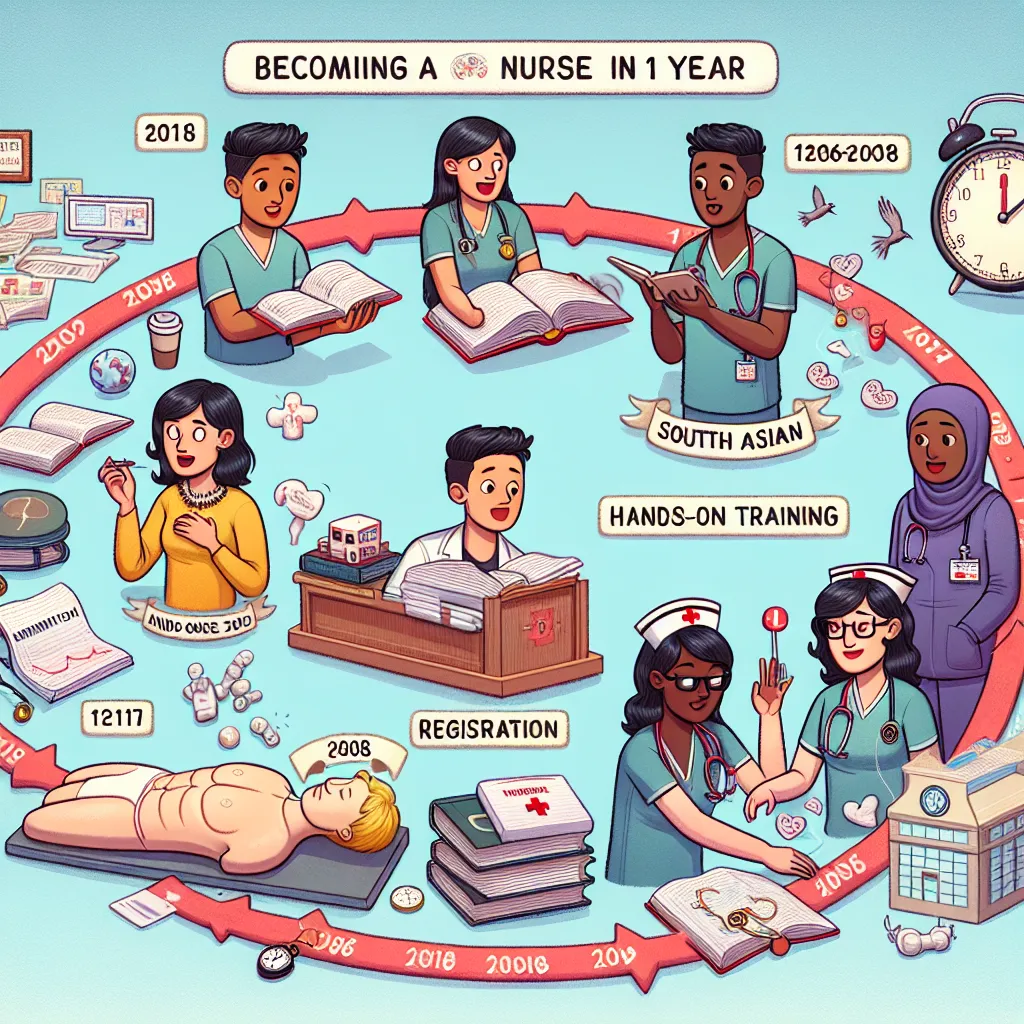Become a Registered Nurse in 1 Year
Become a Registered Nurse in 1 Year
Have you ever dreamt of becoming a registered nurse? Are you passionate about patient care and making a difference in people’s lives? Despite the common belief that becoming a registered nurse takes years of education and training, there are actually accelerated programs available that can help you achieve your dream in just one year. In this article, we will explore the possibilities and steps you can take to become a registered nurse within a shorter time frame.
The Demand for Registered Nurses
Before delving into the details of becoming a registered nurse in one year, let’s first understand the demand for RNs in the healthcare industry. According to the U.S. Bureau of Labor Statistics, the employment of registered nurses is projected to grow by 9% from 2020 to 2030, much faster than the average for all occupations. This growth is primarily due to an increased emphasis on preventive care and the aging population requiring more healthcare services.

With such a high demand for registered nurses, there has never been a better time to pursue a career in this field. The opportunity to make a positive impact on people’s lives while enjoying job security and competitive salaries makes nursing an attractive career choice.
Accelerated Nursing Programs
Although the traditional path to becoming a registered nurse involves completing a Bachelor of Science in Nursing (BSN) degree, which typically takes four years, there are accelerated nursing programs designed specifically for individuals who already hold a non-nursing bachelor’s degree. These programs are commonly known as “second-degree” or “direct-entry” programs.
The accelerated nursing programs compress the curriculum into a shorter timeframe, allowing students to earn their BSN degree and become eligible for the National Council Licensure Examination for Registered Nurses (NCLEX-RN) within one year. These programs are intensive and require full-time commitment, but they provide a fast-track route to becoming a registered nurse.
Admission Requirements
While the specific admission requirements vary among accelerated nursing programs, there are some common prerequisites that you may need to fulfill:
- A non-nursing bachelor’s degree from an accredited institution
- Minimum GPA requirements (usually around 3.0 or higher)
- Transcripts from previous colleges or universities
- Letters of recommendation
- Personal statement or essay
- Criminal background check and drug screening
Additionally, some programs may require applicants to complete specific prerequisite courses, such as anatomy and physiology, microbiology, and statistics, before starting the accelerated program.
The Curriculum
Accelerated nursing programs are designed to provide students with the necessary knowledge and skills to practice as registered nurses. The curriculum typically includes both classroom lectures and hands-on clinical experiences. Some common courses you can expect to take during the program include:
- Foundations of Nursing
- Pharmacology
- Pathophysiology
- Medical-Surgical Nursing
- Maternal and Child Health Nursing
- Mental Health Nursing
- Nursing Research
- Community Health Nursing
- Leadership and Management in Nursing
These courses cover a wide range of topics and provide students with a comprehensive understanding of nursing theory, practice, and patient care. The clinical experiences allow students to apply their knowledge in real healthcare settings, working alongside experienced nurses.
Licensure and Career Opportunities
Upon successful completion of an accelerated nursing program, graduates are eligible to take the NCLEX-RN, a standardized examination required to obtain licensure as a registered nurse. Passing the NCLEX-RN is crucial to becoming a registered nurse and gaining employment in the field.
Once licensed, registered nurses have a multitude of career opportunities available to them. They can work in hospitals, clinics, nursing homes, schools, home healthcare, and various other healthcare settings. Registered nurses can also specialize in areas such as pediatrics, oncology, critical care, or obstetrics, depending on their interests and career goals.
Conclusion
While becoming a registered nurse traditionally requires several years of education and training, accelerated nursing programs offer a fast-track route to achieving your dream in just one year. These programs are designed for individuals who already hold a non-nursing bachelor’s degree and provide an intensive curriculum that prepares students for the NCLEX-RN licensure examination.
If you are passionate about patient care and making a difference in people’s lives, consider exploring accelerated nursing programs in your area. With the high demand for registered nurses and the opportunity for a rewarding career, embarking on this journey may be the right choice for you.
